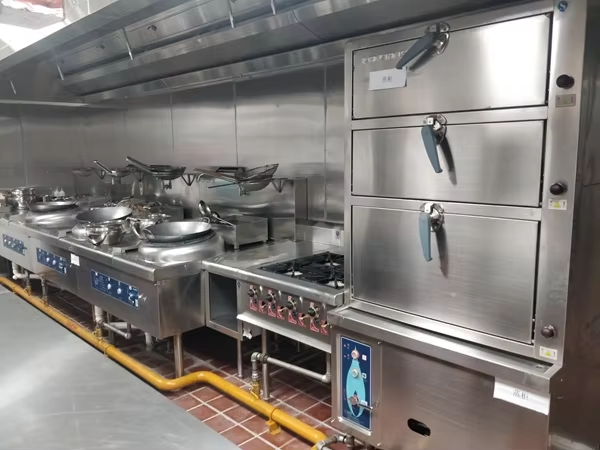Promoting Sustainability in Coffee Roaster Factory Processes: A Path to Eco-Friendly Practices
Promoting Sustainability in Coffee Roaster Factory Processes
Introduction to Sustainability in Coffee Production
In recent years, the coffee industry has faced increasing pressure to adopt sustainable practices. Consumers are more aware of their environmental impact and prefer brands that prioritize eco-conscious methods. Sustainability in coffee roaster factories goes beyond simply sourcing ethical beans; it encompasses energy conservation, waste reduction, and community engagement. By focusing on sustainable practices, roasteries can not only improve their environmental footprint but also enhance brand loyalty and market competitiveness.
The Importance of Sustainable Practices in Coffee Roasting
The Environmental Impact of Traditional Coffee Roasting
Traditional coffee roasting methods often involve significant energy consumption and greenhouse gas emissions. From the sourcing of raw beans to the roasting process and packaging, the environmental impact can be profound. Implementing sustainable practices helps mitigate these effects, fostering a healthier planet.
Consumer Demand for Sustainability
Today's consumers seek transparency in the supply chain. They want to know how their coffee is produced, from the origin of the beans to the methods used in roasting. By embracing sustainability, coffee roasters can meet this demand and cultivate a loyal customer base willing to pay a premium for ethically sourced products.
Key Strategies for Sustainable Coffee Roasting
1. Energy Efficiency in Coffee Roasting
Improving energy efficiency is one of the most effective ways to promote sustainability in coffee roasting. By upgrading to energy-efficient roasting machines, factories can significantly reduce energy consumption. Additionally, implementing practices such as heat recovery systems can further enhance efficiency. These systems capture waste heat from the roasting process and redirect it for use in other factory operations, minimizing overall energy usage.
Investing in Renewable Energy Sources
Transitioning to renewable energy sources, such as solar or wind power, can dramatically reduce a coffee roaster's carbon footprint. By installing solar panels on factory rooftops, roasteries can harness clean energy while decreasing reliance on fossil fuels.
2. Sustainable Sourcing of Coffee Beans
Sourcing beans from certified sustainable farms ensures that coffee production supports environmental stewardship and promotes social responsibility. Look for certifications such as Fair Trade, Rainforest Alliance, and Organic, which guarantee that farmers adhere to sustainable practices.
Building Strong Relationships with Suppliers
Engaging directly with coffee farmers fosters transparency and enables roasters to ensure that their beans are ethically sourced. Establishing long-term relationships can also lead to improved quality and consistency in the beans provided, benefiting both parties.
3. Waste Management and Reduction
Waste management is a critical aspect of sustainability. Coffee roaster factories can implement several strategies to reduce waste:
- **Composting Coffee Chaff**: The byproduct of roasting, known as chaff, can be composted instead of discarded. This practice not only minimizes waste but also enriches soil when used in agriculture.
- **Recycling Packaging Materials**: Transitioning to recyclable or biodegradable packaging can significantly reduce landfill contributions. Supporting suppliers who prioritize sustainable materials is essential in this effort.
- **Repurposing Used Coffee Grounds**: Coffee grounds can be recycled into various products, such as skincare items or compost, contributing to a circular economy.
4. Water Conservation Techniques
Water is a vital resource in coffee processing. Implementing water-saving technologies and practices can dramatically lower water consumption:
- **Rainwater Harvesting**: Capturing rainwater for use in factory operations minimizes the reliance on municipal water sources.
- **Efficient Cleaning Systems**: Utilizing low-water cleaning systems can help maintain equipment without excessive water use.
Community and Employee Engagement in Sustainable Practices
Training and Educating Employees
Employees play a crucial role in the successful implementation of sustainable practices. Training staff on the importance of sustainability and how they can contribute fosters a culture of responsibility within the workplace. Workshops and seminars can help instill a sense of pride in workers, empowering them to take ownership of sustainability efforts.
Engaging with Local Communities
Coffee roasters can also promote sustainability by engaging in local community initiatives. Partnering with community organizations to support environmental programs can enhance the roaster's reputation and foster goodwill. Programs may include tree planting events, clean-up drives, or educational outreach in schools regarding sustainability.
Technological Innovations in Sustainable Coffee Roasting
Advanced Roasting Technologies
Investing in technology that supports sustainability is critical for modern coffee roasteries. Advanced roasting machines equipped with IoT (Internet of Things) capabilities can monitor energy usage in real-time, allowing operators to optimize processes and reduce waste.
Data Analytics for Efficiency
Utilizing data analytics can help roasters track their sustainability metrics, from energy consumption to waste generation. This information can inform decision-making and identify areas for improvement, ultimately driving efficiencies across the production line.
Case Studies of Sustainable Coffee Roasters
Success Stories from the Industry
Examining successful coffee roasters that have adopted sustainable practices can provide valuable insights and inspiration. For instance, several coffee companies have effectively implemented zero-waste policies, resulting in significant reductions in landfill contributions and enhanced brand loyalty.
Lessons Learned and Best Practices
Analyzing these case studies allows other roasteries to learn from their experiences. Key takeaways include the importance of investing in technology, engaging employees and communities, and maintaining transparency in sourcing and production processes.
Challenges in Implementing Sustainable Processes
Financial Constraints
While the long-term benefits of sustainable practices are evident, the initial investment can be a barrier for many coffee roasters. Seeking grants, loans, or partnerships can help mitigate financial challenges and ease the transition.
Balancing Quality and Sustainability
Some roasters may worry that sustainability efforts could compromise the quality of their coffee. However, many companies have found that sustainable practices, such as sourcing high-quality beans and minimizing waste, can enhance product quality while benefiting the environment.
Future Trends in Sustainable Coffee Roasting
Consumer Preferences Shifting Towards Sustainability
As consumer awareness of environmental issues continues to rise, the demand for sustainably produced coffee will likely increase. Roasteries that adapt to these trends will not only meet customer expectations but also position themselves as leaders in the industry.
The Role of Certification and Transparency
Future trends suggest that transparency in sourcing and production will become increasingly important. Certifications will play a crucial role in assuring consumers of the sustainability of their coffee, emphasizing the need for roasters to prioritize ethical practices in their operations.
Conclusion
Promoting sustainability in coffee roaster factory processes is not just a trend; it is becoming a necessity in today’s environmentally conscious market. By implementing energy-efficient technologies, sourcing sustainable beans, managing waste effectively, and engaging both employees and communities, coffee roasters can lead the way in creating a more sustainable future. The path to sustainability may present challenges, but the long-term benefits offer an invaluable return on investment for both the environment and the business. By prioritizing these practices, roasters can elevate their brand and contribute positively to the coffee industry as a whole.
RELATED INFORMATION







